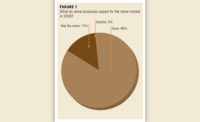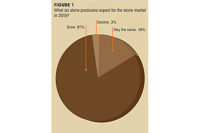To start with, it is useful to identify the basic government definitions of sales and use tax.
Sales tax is imposed on a transfer of title and/or possession of tangible personal property and various services. Sales tax is measured by the sales price paid or the gross receipts received from the transfer of taxable property or services. Historically, this tax has been known as a "transaction tax," as the tax was imposed on specific transactions involving a sale of tangible personal property. Furthermore, services that are a part of a taxable sale of tangible personal property are also generally subject to sales tax.
Use tax complements the sales tax and is typically assessed on purchases made out of state and brought into a jurisdiction for use, storage or consumption. The same property or services subject to sales tax (if purchased from an in-state vendor) are subject to use tax when purchased from an out-of-state vendor and brought or shipped by the seller or the purchaser into the state
Generally, only one of the taxes can be assessed on a transaction; not both. The measure of the use tax, as in the sales tax, is the "purchase price" or the "sales price" of the goods to the consumer. The "purchase price" is generally the value, in terms of money, at which a seller transfers property or services to a buyer.
With the political interpretations of various state and government agencies presented, the real measure is how these terms affect firms in real life.
An example can be found in a flooring contractor who is planning to install a new tile floor for one of its clients. He is on the Internet one night, and sees a web site that sells all of the usual tools, materials or adhesives which are needed to perform the current contract. He notes that he can save 3 to 8.5% in sales tax by buying these materials from an out-of-state vendor, which would amount to as much as $825 in sales tax savings on a $10,000 purchase in New York City. The contractor orders the materials with his credit card, and he is happy because he thinks he may have just saved $825. Unfortunately, the reality is that all he did was take the fiduciary responsibility of collecting the sales tax away from the out-of-state vendor, and may have put the responsibility on himself as the purchaser. He just incurred a "use tax liability."
The bottom line is that consumers may not save as much buying on the Internet -- or from a catalog -- as they might think. This is particularly true if the consumer counts on the absence of tax as part of the savings.
One defense mechanism by these consumers may be to ask, "What are the chances of being audited by my state’s sales tax department?" Recently, one of my clients received a notification from the California sales tax office. They requested to see the firm’s sales invoices, and they also requested copies of resale and tax-exempt certificates, which my client receives from its customers. The sales tax board was looking to see if the company was charging sales tax to its customers. If they saw an invoice to a customer with no sales tax charged, they then requested to see a copy of either a resale certificate or tax-exempt certificate from that customer. The final outcome was that my client had no sales or use tax liability. It turns out that the auditor was making a list of some of the customers who submitted resale or tax-exempt certificates. The auditor was going to use those certificates to see if the customers were filing sales tax returns and paying sales or use tax to the State of California. In some circumstances, these were out of state, which meant their sales tax liability was not to California, but to their home state. In other circumstances, the auditor may use the information found to pursue other sales tax audits within California. As it turns out, this is just one of the many ways a company can get caught for failure to comply with sales and use tax.
Sales and use tax constitute a major revenue source for most of the states that impose the tax. Currently, the following states do not impose a retail sales tax: Oregon, Delaware, Alaska, Montana and New Hampshire.
Tax compliance can save you many headaches as well as penalties and interest. One of the primary ways to stay in compliance is to make sure you file monthly, quarterly or annual sales tax returns with your state. If nothing else, this will get the statue of limitations running. Generally, the statue of limitations is three years back. Meaning, if you have filed sales tax returns all along, the furthest back the audit period can be (if it began today) is 1998. If you have never filed sales tax returns, there is no statue of limitations. Therefore the sales tax audit can include the first day you began doing business, even if that is back in 1991.
It is not necessary to assume that all vendors will get audited, but firms should take proper precaution to assure that if they are audited, it will turn out to be only an inconvenience, and not a devastating hit to the cash flow.
Although it is not feasible to list all products and services which may be subject to sales or use tax, the purchaser needs to make himself familiar with the sales tax laws of his home state. In some circumstances, a business can perform different projects which all may have different sales tax consequences. Firms should get in the habit of questioning themselves as to the sales and use tax ramifications of all contracts they enter into.
As a Certified Public Accountant in New York State, I am always updating my clients as to potential situations which could have an impact on the way a client does business. A company should never hesitate to call its local accountant or use the Internet to answer any questions it may have.

